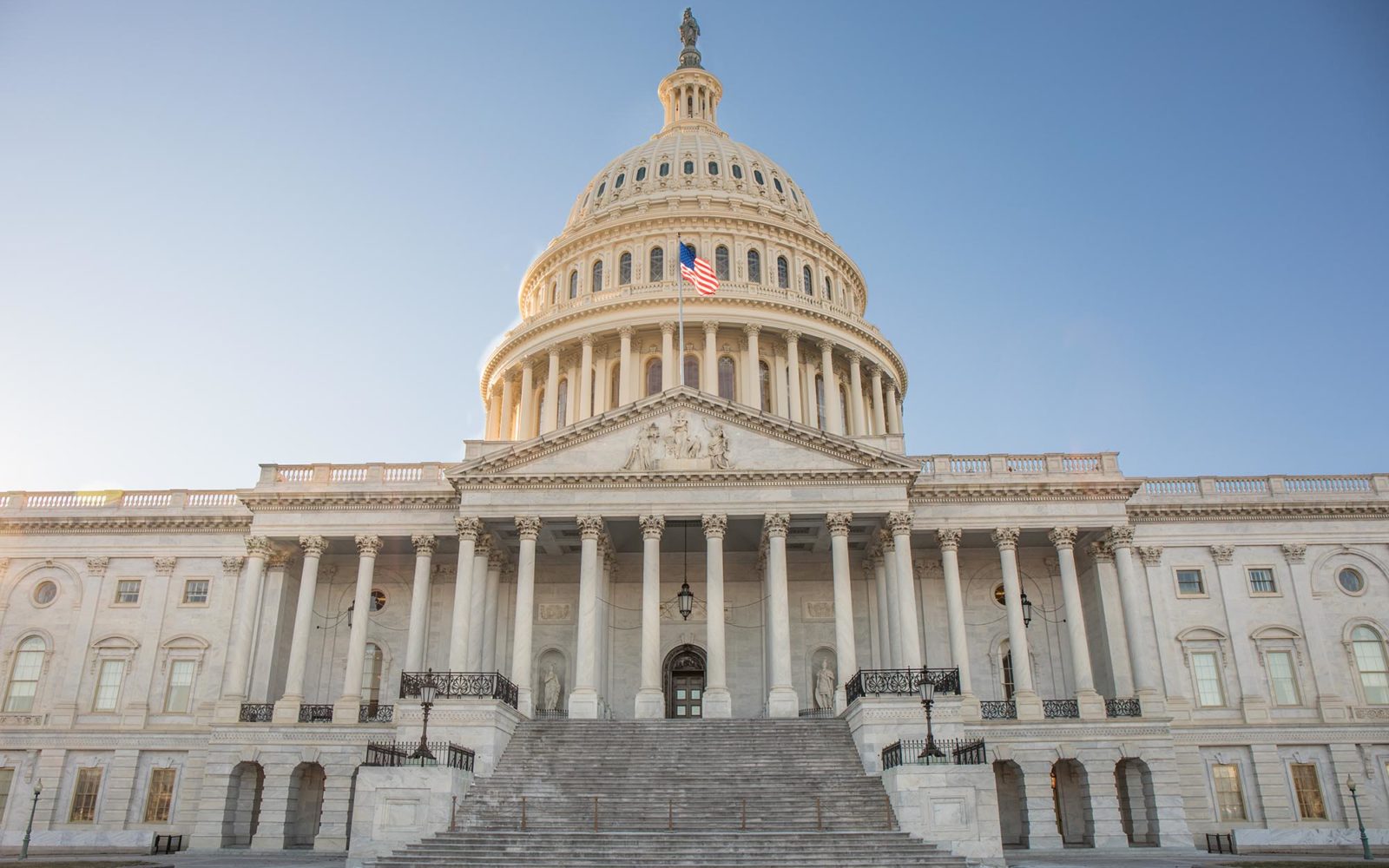Government Relations
Policy Watch: U.S. Lawmakers Offer Support for Science With Key Legislation

As the United States Congress returns from an August recess, unfinished work includes the need to approve government funding before the end of the fiscal year on September 30 and the mid-term elections in November. The good news is that lawmakers in the House of Representatives and Senate have indicated a desire to increase funding for scientific research and education and in early August passed landmark legislation, the CHIPS and Science Act of 2022, that President Biden signed into law.
This landmark, bipartisan legislation boosts U.S. semiconductor manufacturing and provides increased funding and new initiatives at federal science agencies such as the National Science Foundation (NSF), the Department of Energy’s Office of Science, and the National Institute of Standards and Technology. In addition to increased microchip manufacturing, the bill “authorizes” the doubling of NSF’s budget over 5 years and establishes a new technology directorate to advance research that may have commercial potential. The directorate will focus on emerging technology as well as climate change and workforce advancement. The CHIPS and Science Act of 2022 includes provisions initially proposed in several different legislative proposals that were supported by APS, including Senator Schumer’s Endless Frontiers Act, the United States Innovation and Competition Act (USICA), and NSF For the Future.
Earlier this year, APS informed members that reports accompanying funding legislation expressed support for investments in behavioral science. In the House Appropriations Committee’s approved version of annual funding bills, the following items were included:
- Funding would increase for the National Institutes of Health (NIH) and the National Science Foundation (NSF).
- The NSF Graduate Research Fellowship Program (GRFP), an important program that supports students enrolled in or about to enter a research-based PhD or master’s program in a STEM field, would receive a budget bump that will permit the agency to award roughly 250 more fellowships and increase the size of stipends.
- Lawmakers recognized the NIH Office of Behavioral and Social Sciences Research (OBSSR) and the NSF Social, Behavioral, and Economic Sciences (SBE) directorate for playing a key role in understanding public health challenges. Though the inclusion of such language does come with monetary increases, it is also important for ensuring that key behavioral science funders at federal agencies are supported by Congress.
- The Centers for Disease Control and Prevention (CDC)’s social determinants of health program would receive a $92 million budget increase, bringing its funding total to $100 million.
The Appropriations Committee also expressed support for the Department of Defense to include graduates of Psychological Clinical Science Accreditation System (PCSAS) programs as eligible for employment as psychologists within the Department of Defense. Previously, only graduates of APA accredited programs were eligible for employment within the Department of Defense.
Another boost to science funding came in July, when Senate Appropriations Committee Chairman Patrick Leahy (D-VT) put forth a “Chairman’s mark” for 12 appropriations bills. Included in his recommendations were similarly supportive funding levels and language for NIH, NSF, and CDC programs (see below). The Chairman’s mark, traditionally drafted in collaboration with the majority party of the committee, reflects the legislative priorities of the Chairman and is used as a starting point for negotiations.
So, what’s next?
First, the Senate must settle on its funding levels, then the House and Senate will reconcile differences. After that point, the bills will move to President Biden’s desk to be signed into law. The full summary and language from the House reports can be found at 2023 U.S. House Funding Reports Include Key Language For Behavioral Science. APS continues to press for increased funding for psychological science in the current appropriations bills and will provide APS members with updates at APS Funding & Policy.
See below for the Senate appropriations language from the Chairman’s mark supportive of behavioral science.
The language can be found in the ‘Explanatory Statements’ section of the legislation. Full Bill Text, Explanatory Statements, and Summaries can be found here.
Labor, Health and Human Services, Education, and Related Agencies:
Centers for Disease Control and Prevention
Social Determinants of Health [SDOH].—The Committee recognizes the important impact of SDOH on outcomes and health inequities in communities. The Committee provides $100,000,000 to expand SDOH activities to all States and territories. These activities should include expanding and implementing accelerator plans and providing grants for implementation of SDOH activities. CDC should award grants to improve the capacity of governmental and non-governmental public health organizations and community organizations to address SDOH in communities; support and conduct research on best practices; and improve health outcomes and reduce health inequities by coordinating SDOH activities across CDC.
The Committee urges CDC to fund and integrate knowledge from behavioral science research as part of the effort to develop new evidence-based interventions to ameliorate social determinants’ potential negative effects. The Committee believes that behavioral science research focused on understanding SDOH can increase the use of and adherence to healthy behaviors that help prevent chronic conditions such as cancer, heart disease, and diabetes.
National Institutes of Health, Office of the Director
Behavioral Science at NIH.—The Committee notes that multiple Surgeons General and NASEM reports have concluded that most diseases and health problems facing the Nation have significant behavioral components. Meanwhile, behavioral science issues surrounding the current pandemic, including vaccine hesitancy and health misinformation, have made clear that it is important to better understand healthy behavior and how to improve health communications. Therefore, the Committee strongly supports the continued strengthening of the behavioral science enterprise at NIH and urges the Office of Behavioral and Social Science Research funding be increased to accomplish this mission. The Committee is pleased that an NIH working group is concluding its review of how better to integrate and realize the benefits to overall health from behavioral research at NIH.
Commerce, Justice, Science, and Related Agencies:
National Science Foundation
Social, Behavioral, and Economic Sciences [SBE].—The Committee supports the SBE Directorate and recognizes the fundamental importance of the research it supports in advancing scientific understanding of public health, defense and security, education and learning, and the interface between humans and technology. The SBE directorate funds more than half of our Nation’s university-based behavioral science research but remains the smallest of NSF directorates. The Committee believes that behavioral science provides evidence-based understanding of human behavior and recognizes the SBE Directorate’s unique role in funding this research and encourages NSF to continue its support of these programs.
Graduate Research Fellowship Program [GRFP].—The Committee accepts the proposal to consolidate GRFP within STEM Education and provides up to $355,000,000 for the program. The Committee notes that GRFP has a long history of supporting outstanding graduate students studying sciences, engineering, and mathematics fields, including behavioral science, and selects recipients who go on to achieve high levels of success in their future academic and professional careers. The Committee is supportive of the proposed increase to the fellowship stipend and encourages NSF to consider a similar proposal as part of the fiscal year 2024 budget request.
Related content we think you’ll enjoy
-

2023 U.S. House Funding Reports Include Key Language For Behavioral Science
The U.S. House of Representatives Appropriations Committee advanced appropriations funding bills and accompanying reports that include support for behavioral science.
-

Government Research, Funding, & Policy Webinars
Learn about APS webinars, read summaries of past events, and register for upcoming webinars here!
-

Bringing the World Into Our Science
In her inaugural column as APS President, Jennifer Eberhardt, with colleagues Hazel Rose Markus and MarYam Hamedani, urges collaboration with practitioners.
Feedback on this article? Email [email protected] or login to comment.





APS regularly opens certain online articles for discussion on our website. Effective February 2021, you must be a logged-in APS member to post comments. By posting a comment, you agree to our Community Guidelines and the display of your profile information, including your name and affiliation. Any opinions, findings, conclusions, or recommendations present in article comments are those of the writers and do not necessarily reflect the views of APS or the article’s author. For more information, please see our Community Guidelines.
Please login with your APS account to comment.